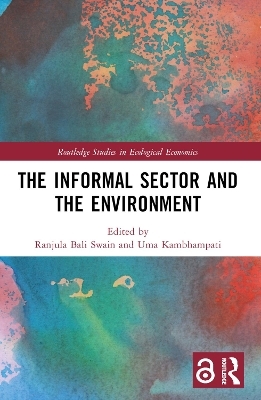
The Informal Sector and the Environment
Routledge (Verlag)
978-1-032-12268-7 (ISBN)
This edited volume demonstrates that the informal sector is a major source of environmental pollution and a major reason behind the environmental degradation accompanying the expansion of economic activity in developing countries. Environmental regulation and economic incentive policies are difficult to implement in this sector because economic units are unregistered, geographically dispersed and difficult to identify. Moreover, given their limited capital base, they cannot afford to pay pollution fees or install pollution abating equipment. Informal manufacturing units often operate under unscientific and unhealthy conditions, further contributing to polluting the environment. The book emphasizes and examines these challenges, and their solutions, encountered in various sectors of the informal economy, including urban waste pickers, small-scale farmers, informal workers, home-based workers, street vendors, and more. If the informal sector is to "Leave no one behind" (as the Sustainable Development Goals promise) and contribute to "inclusive growth" (an objective of the green economy), then its impact on the economy as well as the environment has to be carefully considered.
This book marks a significant contribution to the literature on both the informal economy and sustainable development, and will be of great interest to readers in economics, geography, politics, environment studies and public policy more broadly.
Chapter 4 of this book is available for free in PDF format as Open Access from the individual product page at www.routledge.com. It has been made available under a Creative Commons Attribution-Non Commercial-No Derivatives 4.0 license
Ranjula Bali Swain is Visiting Professor and Research Director at the Center for Sustainability Research (CSR), Stockholm School of Economics, Sweden. She is also Professor of Economics at Södertörn University, Sweden. Uma Kambhampati is Head of School in the School of Politics Economics and International Relations and Professor, Department of Economics, University of Reading, UK.
Preface Chapter 1. Introduction Chapter 2. Regulation, governance and the role of the informal sector in influencing environmental quality? Chapter 3. Informal Emissions Chapter 4. Exploring the environmental and social impact of informal market practices in the apparel industry Chapter 5. Sustainability priority changes of companies in the informal sector in China under COVID-19 Chapter 6. Making small beautiful—lessons from Mexican leather tanneries and brick kilns Chapter 7. Youth rural-urban migration in Ethiopia: Environmental drivers and employment in the informal sector Chapter 8. Role of Informal Economy in solid waste management – Case of India Chapter 9. Epidemiological Risk Perceptions of People Living Close to Open Dumps in Nampula, Mozambique: A Case Study Control Chapter 10. Integration of the Informal Recycling Sector in Former Yugoslavia: Insights from 20 Years of Integration Projects and Initiatives
| Erscheinungsdatum | 05.09.2022 |
|---|---|
| Reihe/Serie | Routledge Studies in Ecological Economics |
| Zusatzinfo | 39 Tables, black and white; 12 Line drawings, black and white; 3 Halftones, black and white; 15 Illustrations, black and white |
| Verlagsort | London |
| Sprache | englisch |
| Maße | 156 x 234 mm |
| Gewicht | 410 g |
| Themenwelt | Wirtschaft ► Volkswirtschaftslehre ► Makroökonomie |
| ISBN-10 | 1-032-12268-4 / 1032122684 |
| ISBN-13 | 978-1-032-12268-7 / 9781032122687 |
| Zustand | Neuware |
| Haben Sie eine Frage zum Produkt? |
aus dem Bereich


